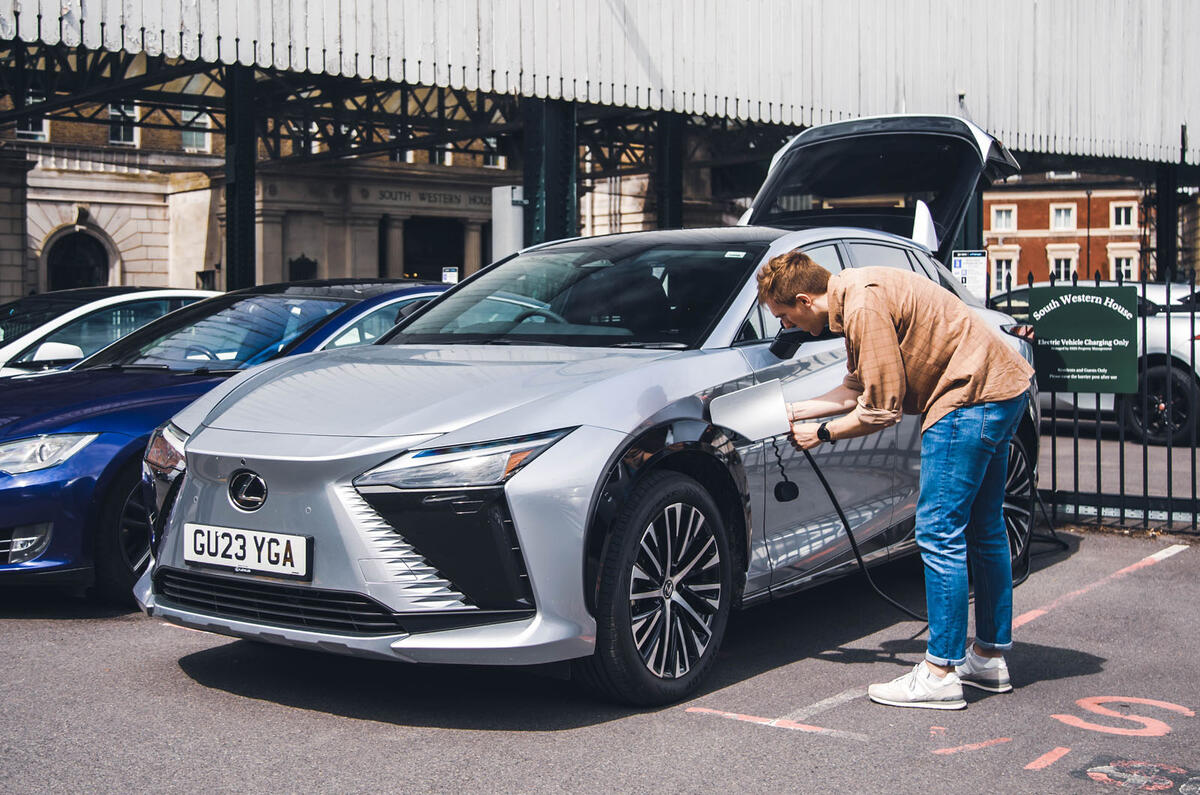Car industry body the Society of Motor Manufacturers and Traders (SMMT) has called the proposed pay-per-mile tax on electric vehicles "entirely the wrong measure at the wrong time", warning it could deter motorists from switching to EVs.
As reported by national media this morning, the UK government is set to introduce a levy of 3p per mile driven in an electric vehicle, in a bid to fill a gap in fuel duty revenues caused by the transition away from petrol and diesel.
The Telegraph, BBC and Financial Times have reported that the measure is due to be included in this month’s Budget.
The charge will come in addition to the £195 vehicle excise duty that EV owners are required to pay annually and, according to The Telegraph, it is described by government insiders as “VED-plus”.
The measure is set to be introduced in 2028, pending a public consultation.
It could raise £1.8 billion a year by the early 2030s as the transition to electric power ramps up. For reference, the Society of Motor Manufacturers and Traders said in April that there were now 1.3 million EVs on the road.
Under the reported proposals, an EV driver who covers 8000 miles in a year would be required to pay £435 in charges annually – £240 in per-mile fees and £195 in VED.
Questions remain over how such a scheme would be enforced.
The reports suggest that EV drivers would be required to estimate and declare their annual mileage when they pay VED. If they exceed this mileage, they will be required to pay for the overage; if they travel fewer miles, they will get credit for the following year. But it remains unclear how mileages will be monitored or audited.
![]()
A government spokesperson told the BBC that charging EV drivers per mile would be “fairer”, given drivers of combustion-engined cars have long paid fuel duty – effectively levying them for each mile they drive.
The car industry has warned that the move could discourage potential buyers of EVs.
The SMMT said: "We recognise the need for a new approach to motoring taxes, but at such a pivotal moment in the UK’s EV transition, this would be entirely the wrong measure at the wrong time.
"Introducing such a complex, costly regime that targets the very vehicles manufacturers are challenged to sell would be a strategic mistake – deterring consumers and further undermining industry’s ability to meet ZEV mandate targets, with significant ramifications for perceptions of the UK as a place to invest.







Join the debate
Add your comment
I am against this, not because i think EVs should not be taxed, but because pay per mile will spread from EVs to all cars, and then from a cost per mile to a different price depending on which road you are on, what car you are driving, and what time of day. Blair wanted this 20 years ago
Given that we all pay VED already, the easiest way to collect the tax would be a flat rate added to VED for EVs. And if they want to spread that to all cars, dropping fuel duty, and the VAT we pay on it, and add £250, roughly what they are suggesting the average EV will pay at 3 ppm. I would be up for that.
I think we can all agree that as EVs get more numerous that they need to pay a fair tax. If you drive ICE and do 8,000 a year at 40 mpg you already pay over £500 fuel duty, and a further £100 VAT on top of that. At present EVs pay nothing in comparison, and if they are charged at home pay just 5% Vat and if that on a cheap overnight rate, the 5% adds up to almost nothing.
So, its just, how do they collect the tax. maybe people would be OK if they were able, or forced to pay the EV tax monthly. Most peole dont seem to care about spending money if its split into a monthly fee.
Saving money driving an EV is fine if its more efficient, but its not on if its just because you pay less tax
What an absurd proposal. Offer a grant to encourage E.V purchase, but then consider a pence per mile scheme to increase the tax, which will probably do the opposite.
so how much tax would the ownwer of a £40000 E.V that covers 15000 miles a year pay?
£195 standard rate, £425, plus £450. Which is £1070 a year. Stuff that.
It isn't rocket science is it?